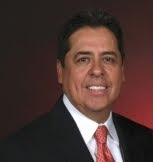Wednesday, October 28, 2009
The Public Option is Back in
All indications are that the Senate Democrat Health Plan that will be revealed on Thursday will include a "moderate" public option. Details need to be reviewed but it may not be as bad as it could be. One of the features will be the ability for states to "opt out", giving states with plenty of competition (like Texas) the ability to bypass a public health plan. For those of you that have had operations in Mississippi or Alabama, you understand the issue with Blue Cross Blue Shield being the only game in town making it difficult (impossible?) to negotiate rates.... so these states could benefit from a public option. The original version was to have a public option - subsidized by government - compete with insurance providers.... which would be very difficult for these providers to compete on cost. One of my biggest concerns with the original version was the notion that companies must offer health coverage to their employees or pay something like 9.5% of payroll into the public option and employees would then be required to use the public option. I've been around the table when Health Care costs are being discussed with Sr. Executives, and my concern is during difficult times (like we have been through in the past year and 1/2), it would be easy to see that 9.5% is a less costly option. Of course we would argue the need to have a competitive health plan and how it would be difficult to attract and retain talent - but all it takes is one energy company to move forward with the public option (especially a large company) and everyone will follow suit. Before you know it - the Public Option is the only game in town. Hopefully the new "moderate" public option will alleviate this concern.
Thursday, October 22, 2009
Government Meddling in Executive Pay
Well today the "pay czar" Kenneth Feinstein announced that those companies that received TARP funds will have their base salaries cut by 90% in 2010. This will only impact the top 25 executives at these firms.
Fortunately, the Energy industry did not fall under TARP and is not impacted by these changes. However, President Obama quickly followed the announcement by urging Congress to pass "say on pay" for all publicly traded companies.
So what will happen? More than likely, Congress will pass a non-binding "say on pay" where shareholders will have the opportunity to vote on management pay packages. It will likely be a vote on the Compensation Discussion and Analysis (CD&A) section of the proxy.
HR should begin to review their pay philosophy and practices looking for "red flag" issues. Most energy companies are owned primarily by large institutional investors that may have their "red flag issues" clearly identified, or they will likely subscribe to shareholder services groups like Glass Lewis or Risk Metrics (ISS). Some of these services have requirements such as: disclosing performance measures and targets, listing peer companies, risk evaluation, etc. If you need help reviewing your Executive Compensation prior to "say on pay" being required, feel free to contact me for assistance.
Fortunately, the Energy industry did not fall under TARP and is not impacted by these changes. However, President Obama quickly followed the announcement by urging Congress to pass "say on pay" for all publicly traded companies.
So what will happen? More than likely, Congress will pass a non-binding "say on pay" where shareholders will have the opportunity to vote on management pay packages. It will likely be a vote on the Compensation Discussion and Analysis (CD&A) section of the proxy.
HR should begin to review their pay philosophy and practices looking for "red flag" issues. Most energy companies are owned primarily by large institutional investors that may have their "red flag issues" clearly identified, or they will likely subscribe to shareholder services groups like Glass Lewis or Risk Metrics (ISS). Some of these services have requirements such as: disclosing performance measures and targets, listing peer companies, risk evaluation, etc. If you need help reviewing your Executive Compensation prior to "say on pay" being required, feel free to contact me for assistance.
Subscribe to:
Posts (Atom)
